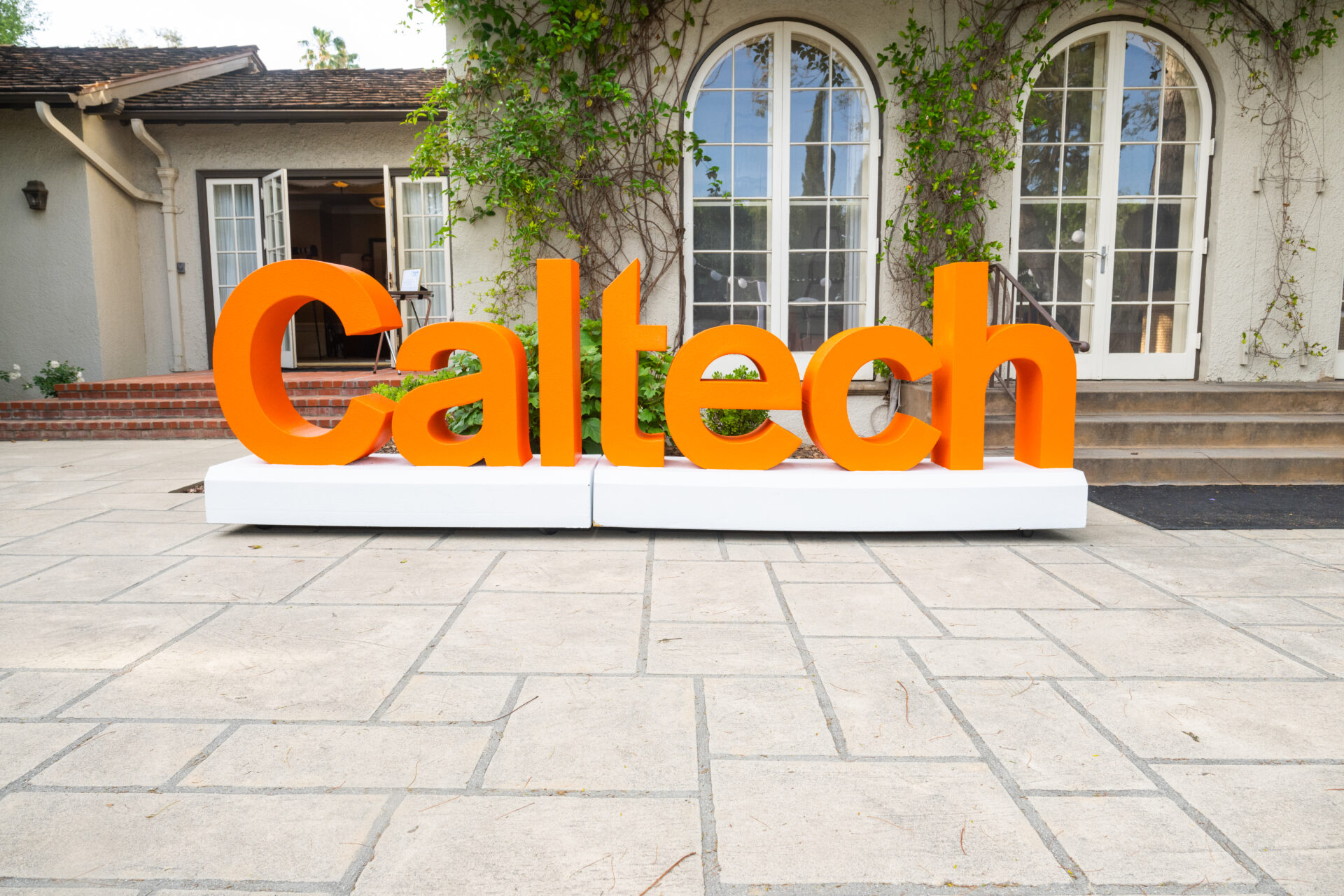From Earworms to Ebola

Most people would not choose to head into the center of an outbreak of infectious disease—not even journalists. Yet in October 2014, that’s exactly what Michaeleen Doucleff chose to do. A global-health and science reporter for National Public Radio, Doucleff had for several months been covering a devastating outbreak of Ebola in Liberia. From her offices at KQED in San Francisco, she chronicled the science of the disease, educating listeners on topics such as how Ebola wreaks its peculiar havoc, what enabled it to travel across Africa, and how the disease was mutating genetically.
When an assignment came to go to Liberia and see the effects firsthand, Doucleff knew she had to go. “I immediately volunteered,” Doucleff says. “My husband [Matt Doucleff, who also studied at Caltech] didn’t want me to go, but I felt that if I was to speak about the science of Ebola, I needed to see what was happening.”
Arriving in Liberia a few weeks after the peak of the outbreak, Doucleff filed a number of reports that offered a personal and unsettling picture. The most memorable was a devastating story about a maternity ward overwhelmed with expectant mothers who had been refused services elsewhere for fear of infection. “Giving birth involves a lot of blood, so many hospitals were simply refusing expectant mothers as patients for fear of infection,” Doucleff says. “I stood in one of the few maternity wards that would take them, where they had lost mothers, children, and nurses. It was heartbreaking.”
Doucleff says that the experience required her to broaden her view. “As a scientist, it was fascinating, because I was placed on the front lines of our fight against infectious disease,” she says. “And as a reporter, I was forced to confront its human impact directly.” Doucleff ’s reports were packaged as part of a larger series that earned NPR a Peabody Award that year, a notable achievement for a new reporter.
“Only four years before, I had been making proteins in a lab in the basement of the National Institutes of Health,” Doucleff says. “I had no idea I would end up here.”
Doucleff grew up in Leesburg, Virginia, about 45 minutes west of Washington, D.C. Her parents worked in medicine: Her father was an ophthalmologist and her mother worked for a time as a nurse. When the time came for college, the sciences seemed like a natural fit.
Like many, she found the Institute to be challenging and rewarding, “Caltech exposed me to so many new subjects, but also afforded me the chance to discover more about myself,” she said. “I loved learning, but by graduation, I honestly wasn’t sure that I wanted to be a scientist.”
So Doucleff took a detour into winemaking, earning her master’s degree at UC Davis. “Winemaking is this great combination of chemistry, microbiology, and craft…but I really missed the research.” She continued on to UC Berkeley, where, while earning her doctorate in chemistry, she discovered an interest in writing.
“Maybe this sounds naive, but I would read these running magazines and think, ‘Oh, hey, I could do that.’” She began as many freelancers do, routinely pitching stories in her spare time to publications, which eventually led to a job at Cell magazine.
Her big break came in 2012, courtesy of Adele. The soulful pop singer’s album 21 had been dominating the charts since its release in 2011. “Everyone was talking about how listening to Adele made them cry. Saturday Night Live even had a skit about it,” Doucleff says. “I thought—well, why is that? How does a song have such a consistent effect? There had to be some explanation.”
Doucleff put Adele’s mammoth hit song “Someone Like You” on the dissection table, explaining obscure terms such as appoggiatura—a musical device in which an ornamental note clashes with the melody—and how it can be used to induce all the right goose bumps. Doucleff ’s story was informative, charming, nerdy, and most importantly…timely. The Wall Street Journal picked it up and published it the day before Adele swept that year’s Grammy Awards, taking home six trophies including Album of the Year. “After that
it went viral,” Doucleff says. “The story was translated into dozens of languages. I think there was a Thai version of it. It’s still my most widely distributed piece.”
The Adele earworm story helped land Doucleff at NPR, where she has been ever since, working her way up to the science desk. She has reported numerous stories on topics ranging from population trends and the use of antibiotics, to viral diseases such as HIV and, more recently, Zika.
“Michaeleen is an idea machine,” says Scott Hensley, an editor on NPR’s science desk. “She can digest abstract scientifc concepts and make it accessible. But even more, she’s able to craft it into a good story that really engages the listener. She’s curious and relentless—and it shows in her reporting.”
Doucleff credits her Caltech training for her success. “I’ll be the first to admit that Caltech was hard—even bruising—but I think the skills I acquired there absolutely give me an edge,” she says. “I’m able to dig into the science that is shaping some of the most pressing issues of our day and translate them for the public.”
Of all the stories she has worked on, Doucleff believes that her time in Liberia has done the most to shape her. “There is a strong intersection between women’s rights, gender inequality, and access to health care around the world,” Doucleff says.
“While the science is fascinating, I have the opportunity to also witness and report how we use that science, and ultimately…how it shapes our experience,” Doucleff says. “This is my dream job.”
A selection of stories from Michaleen Doucleff. For more, visit NPR »
Related Articles
-

Caltech Alumni Association Announces 2026 Board-Nominated Slate
We are pleased to announce the 2026 board-nominated slate for the Caltech Alumni Association Board of Directors.
-

Scenes from Seminar Day 2025: Techer Families Join a Day of Discovery
View highlights from Caltech’s 88th Seminar Day with a photo gallery of campus tours, faculty lectures, student talks, and the debut of Seminar Day...
-

Support the Caltech and JPL Disaster Relief Fund
Support the Caltech and JPL communities impacted by Southern California's devastating fires.